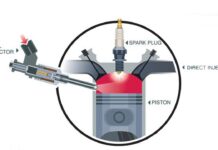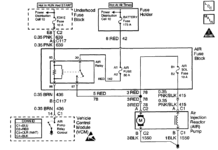What causes white smoke to come out of exhaust? What are the reasons for white smoke coming from the exhaust?
It is quite normal to see white smoke from the exhaust after a while, especially when it is cold. This is often steam from condensation. As the engine warms, the condensation melts and the exhaust fumes also evaporate. As the engine heats up, the accumulations of moisture, water, and snow in the exhaust will evaporate, creating white smoke. It will eventually disappear, but you don’t need to be worried.
White smoke from the exhaust can continue to rise even when the engine is heating up. This is a sign of a serious problem. Check the engine for coolant leaks. Engine coolant mixing can be seen in low water levels, white smoke coming from the exhaust and a sweet odor. The coolant could also mix with engine oil, making it foamy and turning the oil white. Even a tiny amount of coolant can cause white smoke from the exhaust.
A faulty cylinder head gasket is one of the main reasons coolant can mix into the combustion chamber. This gasket acts as a seal between the engine block’s cylinder head. This gasket is heat-resistant, but it will burn first when the engine exceeds its temperature. Engine overheating can be caused by a poorly functioning cooling fan, low fluid or dirty coolant levels, or a poorly maintained cooling systems. Depending on how long the service life of the gasket, it may deform over time and lose its function. Coolant can leak from the combustion chamber and cylinders if there is a faulty gasket. Water leakage can occur even if the gasket remains intact. This is because engine wear and cracks in the block may lead to water loss.
To determine the cause of the white exhaust fumes, check the antifreeze in the radiator. When the engine is running or hot, do not open the radiator or coolant tank caps. Hot water from the engine’s internal pressure can splash onto your face and hands, causing injury. Allow the engine to cool down completely. Even if coolant levels are correct, white smoke can indicate a leak. This is why it is imperative to check the coolant level and, if necessary a pressure test.
Engine misfires, knocking, overheating, and loss of power can all be caused by a faulty gasket.
The exhaust fumes’ color tells the driver what is wrong with the engine. White exhaust fumes are caused by coolant leaking into combustion chamber. Blue exhaust fumes result from oil leaks. Gray exhaust fumes are produced when turbocharger or transmission problems occur. Black exhaust fumes can be caused by clogged filters, defective fuel mixtures and injector malfunctions.
You may also experience white smoke or engine performance issues when you use a fraudulent or poor fuel. You must continue driving the vehicle this way until you run low on fuel. If the fuel is still not working, it’s best to take the vehicle in for service.
Why does white smoke rise from the exhaust?
- 1. It is common for white smoke to rise from the exhaust after starting the engine in cold conditions. There is no reason to be concerned if the exhaust fumes are back to normal once the engine has warmed up.
- 2- Cylinder head gasket becomes deformed and loses its function. Coolant also leaks into the combustion chamber.
- 3- Cracking of engine blocks and leakage of coolant into combustion chamber.
- 4- Leakage in piston rings or valve seals
- Poor quality fuel can cause five problems

















